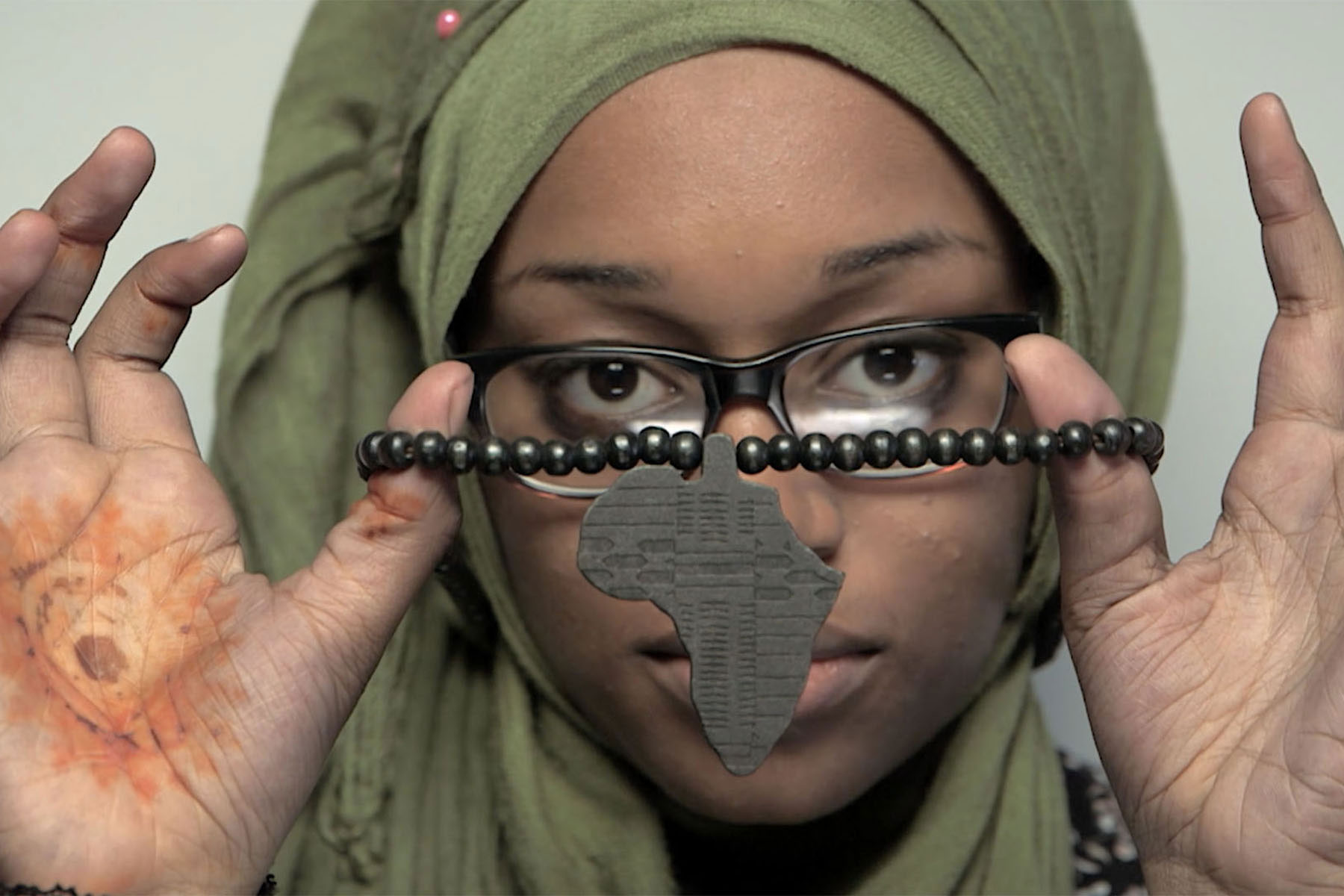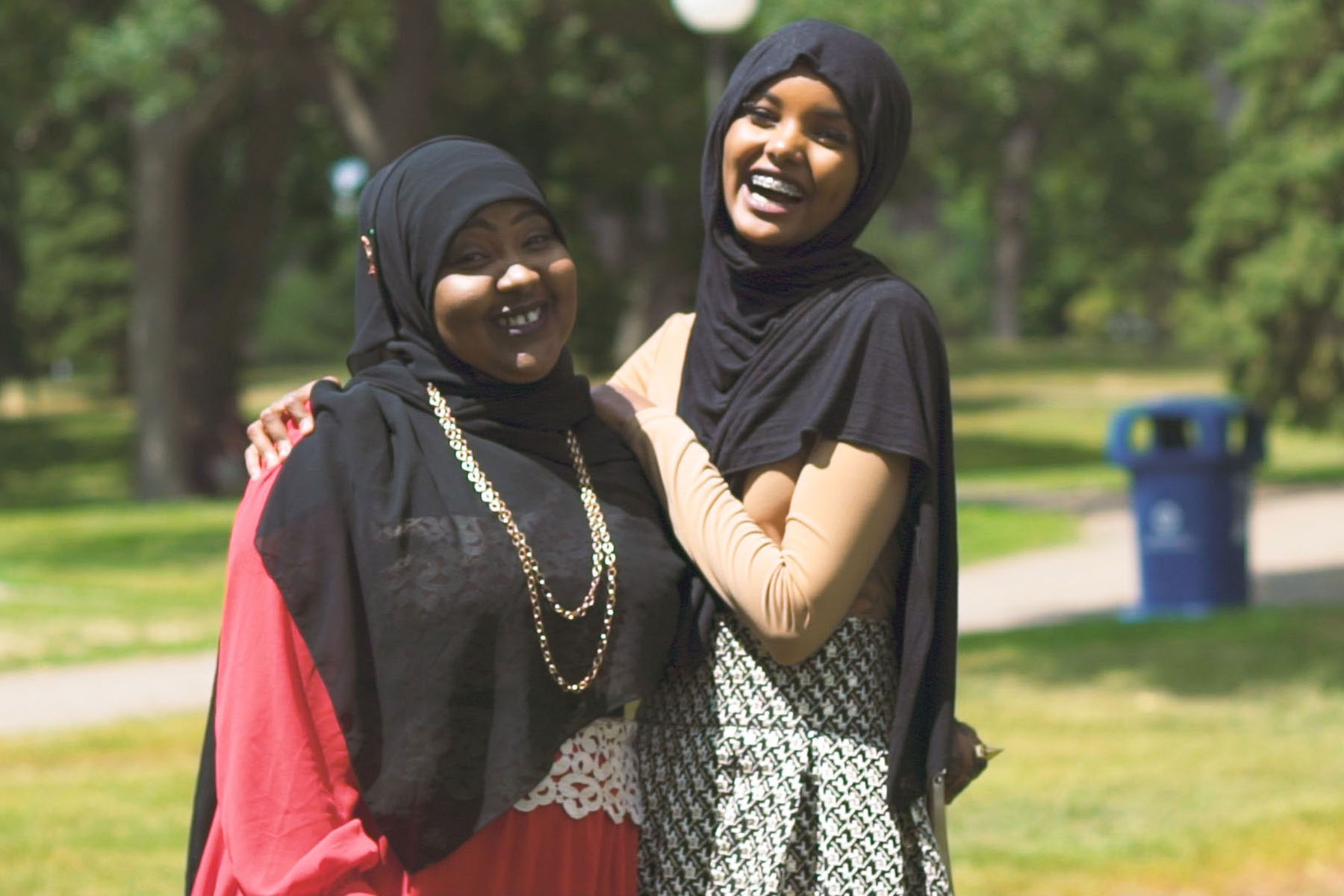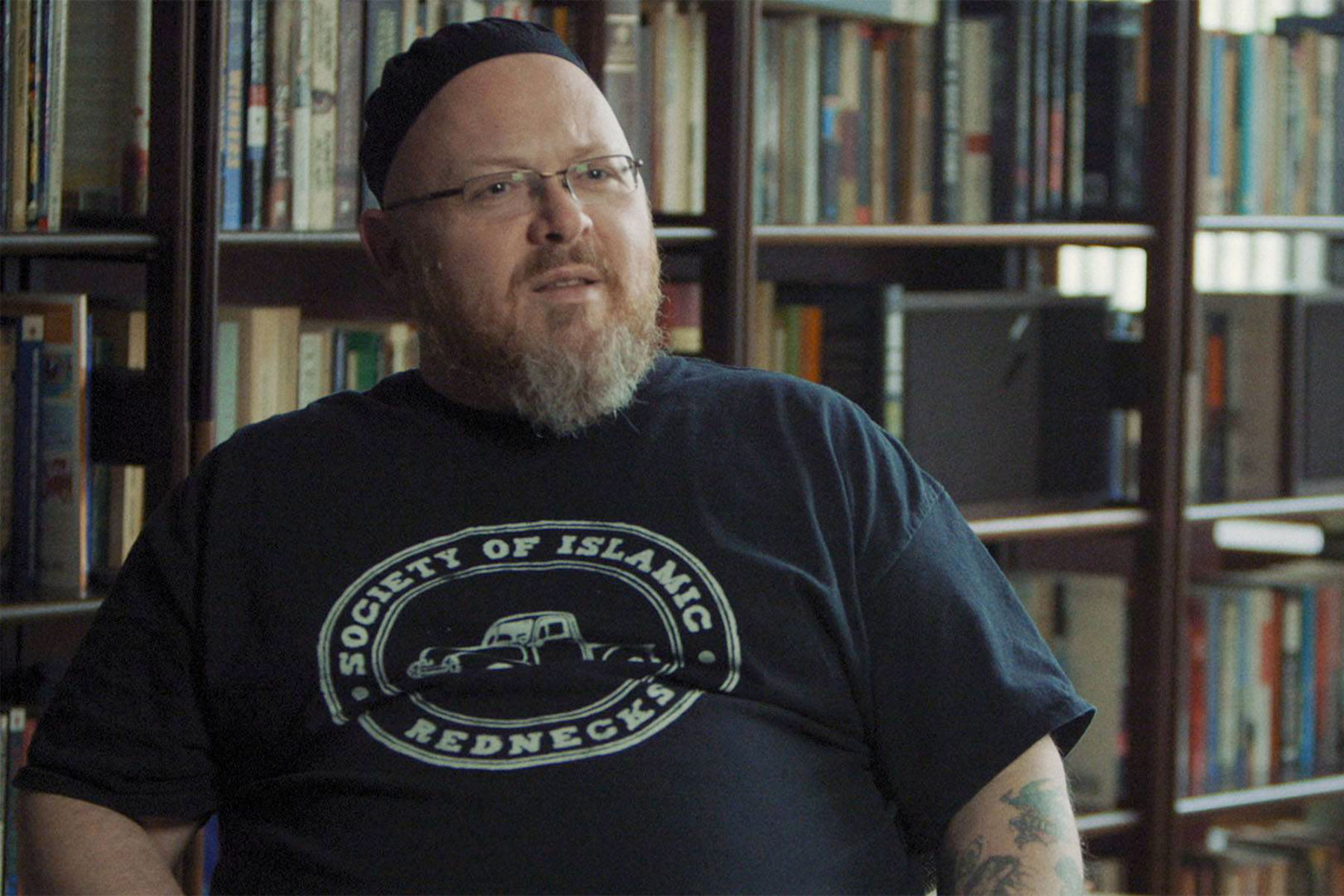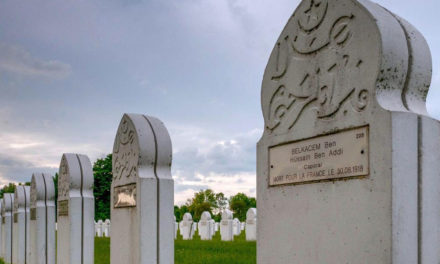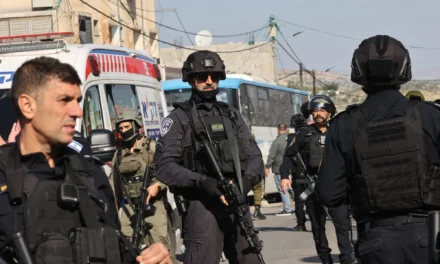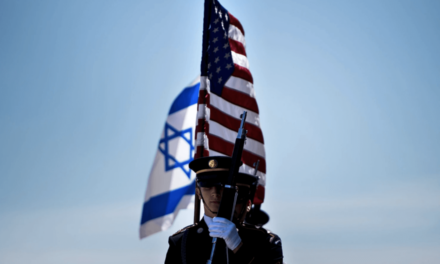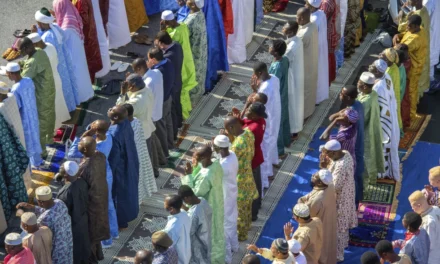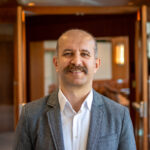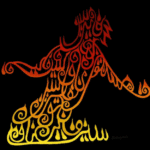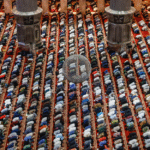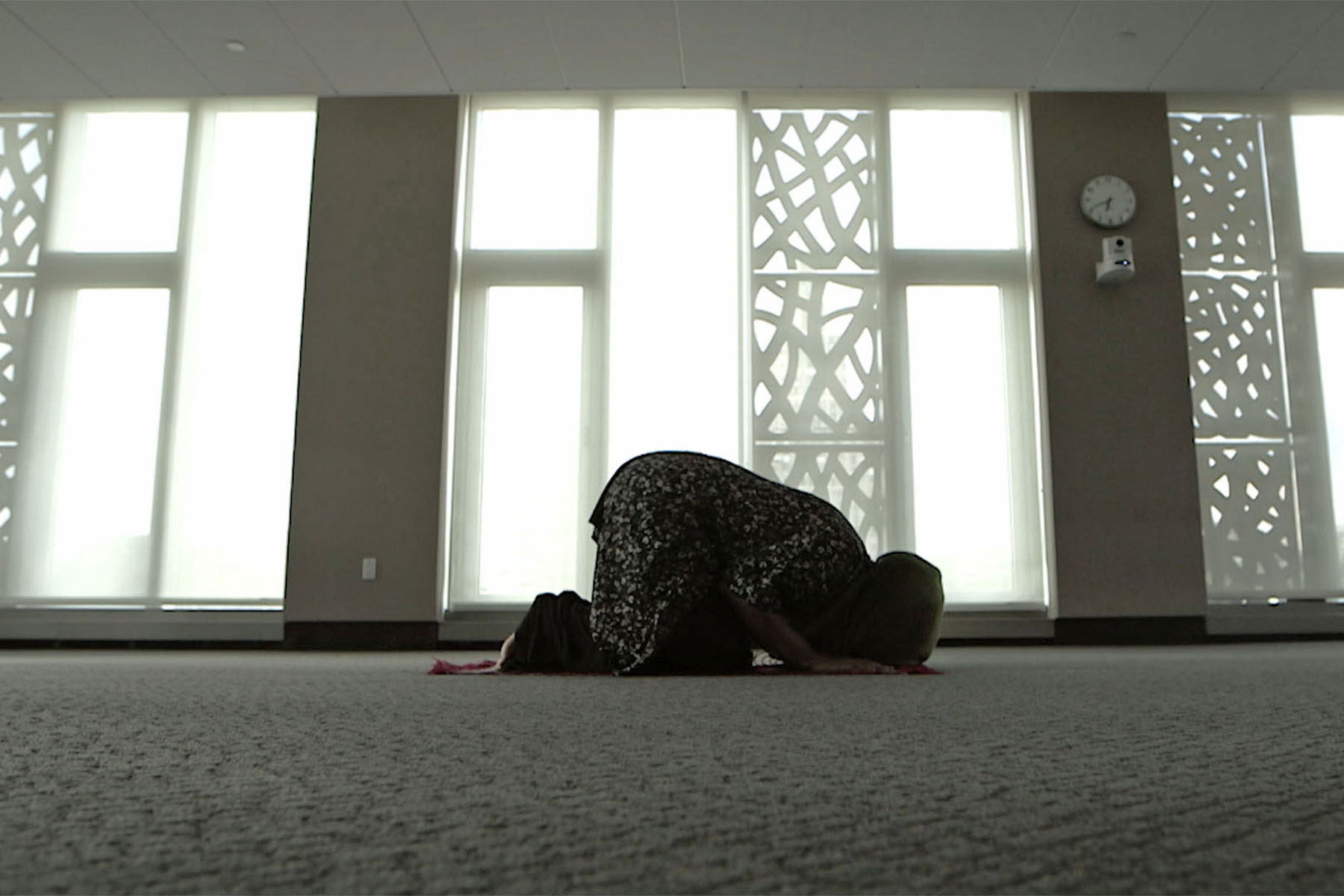
Since its launch in 2012, the PBS Online Film Festival has featured diverse films member stations, producers and public media partners. Starting July 16, viewers can once again watch, vote, and share their favorites. This year’s festival includes collaborations with a wide variety of public television producers. The PBS Online Film Festival has attracted more than 6 million video streams over the first six years.
“Every year, PBS and its member stations challenge ourselves to elevate the breadth and depth of innovative storytelling through our work with the PBS Online Film Festival,” said Ira Rubenstein, Chief Digital and Marketing Officer. “The world of filmmaking is changing, and filmmakers can make as much of an impact on small screens as they do on big screens. The festival amplifies unique stories from an exciting collection of filmmakers across the country, reaching viewers on platforms as diverse as the films themselves.”
Black Muslim Woman
About the Filmmaker
Mikel Aki’lah Jones is an 18-year-old writer from Brooklyn, New York. She began writing at the age of eight, using her work as a way to share her reality as a Black Muslim woman. She was published in the 2012-2014 Poet-Linc Youth Anthologies, which was created by the Lincoln Center for the Performing Arts and has shared her work at the Nuyorican Poets Café, Lincoln Center, and the Brooklyn Public Library. Mikel is currently living and studying in Lyon, France. Musa Syeed, an independent filmmaker and writer, is the Artistic Director & Lead Instructor of the Muslim Youth Voices project. His first feature film, Valley of Saints, won the 2012 Audience Award at the Sundance Film Festival. He has taught film for Williams College and the Tribeca Film Institute. Musa was a Fulbright Fellow in Egypt and is an alumnus of the Tisch School of the Arts and the Middle Eastern & Islamic Studies Department at New York University.
Black Muslim Woman: From the first line, “I feel like I’m on fire,” Mikel Aki’leh Jones delivers a powerful poem on beauty and blackness. Against a rhythmic score, Aki’leh enumerates the ways in which she’s been told that her black skin is “a sign of dirt” to others – and how she ultimately finds strength and confidence through her faith. PBS spoke with Writer Mikel Jones about the judgment she has received as a black Muslim woman and how she is working to overcome those experiences.
PBS: Mikel, your poem explores the judgment you have faced for the color of your skin from both strangers and family alike. In a shocking revelation, we hear how your aunts once told you that the best you could do “was marry an Arab man and have a daughter that looks nothing like” you. Can you tell us more about the history behind your poem?
Mikel Jones: This poem came about at a really weird time in my life; I was going through a really deep search for community, a space in which I felt safe. I had recently become more invested in my faith and wearing the hijab, but what I kept finding was that every space I attempted to go to my identity was kind of confusing, even somewhat shocking, to people. When I would go to certain Muslim spaces it was difficult because I’m black and vice versa. I experienced loads on anti-blackness from the Muslim community and Islamophobia in certain black spaces. This feeling even carried over into parts of my own family because the majority of my family is Christian, and also some were struggling with their own internalized anti-blackness as well, hence the comment.
PBS: We see repetition of certain imagery throughout the film, from the mirrors to the black ink in water. Can you take us through the artistic direction behind this and your overall creative process going into the making of this piece? Can you tell us more about the film’s development through the Muslim Youth Voices Project?
Mikel Jones: This was a while ago but if I remember correctly those shots were the idea of the director. We really wanted to capture through the visuals the internal reality that I was going through.
PBS: At the end of the film, you say, “Sometimes you need to move in order for you to be happy. There will be times when you ask God, ‘Why?’ Don’t worry, God answers.” Can you take us through the conclusion of your poem and how you’ve learned to block out the criticism and find strength through your faith?
Mikel Jones: That really happened through studying my religion and also trying to have a real present connection with God. When you try to remain connected spiritually everything else kind of becomes like background noise and you just want to see the lesson and deeper meaning in it. When it would get hard I’d have to take a step back be like, “Okay God, this is really rough. I know I’m here for a reason, what can I learn from this thing and how can it benefit me going forward on my spiritual path?” So these experiences I’ve had, although unfortunate, can shed light on an issue that the Muslim community is facing. It’s also an opportunity to educate people about the rich history of black Muslims in America and Africa. To be honest though, even with all of this it’s still tough to block out at times.
I am a Refugee
About the Filmmaker Mikel Aki’lah Jones
Ifrah Mansour is a Somali, refugee, Muslim, multimedia artist residing in Minnesota. She explores trauma through the eyes of children to uncover resiliency. She interweaves poetry, puppetry, films, and installations to illuminate the invisible stories of immigrants. Her critically-acclimated “How to Have Fun in a Civil War” premiered at Guthrie Theatre. Her first national museum piece; “Can I touch it” as part of “I am Somali” exhibit at Minneapolis Institute of Arts. Kate McDonald shot, directed, edited and produced this film. Her work has appeared on PBS NewsHour, Entertainment Weekly,and National Public Radio. At Twin Cities PBS, she works for the award-winning show “MN Original” and is the series producer for the multimedia series “Art Is…” She recently produced the feature length film, “The Seeker,” starring Josh Radnor (“How I Met Your Mother”). She is the recipient of 6 regional Emmy Awards.
I am a Refugee: There are 64 million refugees in the world today, individuals who are often invisible to us. Multimedia artist Ifrah Mansour’s work centers around the refugee experience. She recently read her poem “I Am a Refugee” at Twin Cities World Refugee Day, where these portraits were taken. In it she calls for greater acceptance and understanding. “Won’t you just let me find my humanity right here next to you?” PBS spoke with Author Ifrah Mansour and Filmmaker Kate McDonald about the shared experiences, hope and positive change from refugees across the nation.
PBS: Ifrah, can you tell us more about the history and origin story of your poem “I am a Refugee”? How did the concept of written word to film come to fruition?
Ifrah Mansour: When the Trump administration introduced the first Muslim travel ban, I got a lot of performance requests to share my reactions. I honestly didn’t know how to speak to something as so immediately felt by people around me, as my relatives’ arrivals to America got delayed and some of my student family’s reunion plans got changed forever. It seemed too easy to give in to despair. We live in a time where the seeds of hateful oppressions are being planted. But it’s also a critical time to stand for our ideals and our values. I finally wrote a poem responding to the ongoing global refugee politics that’s often harsh and dehumanizing. I wanted the poem to share the complexities and the contradictions of living in America while black, Muslim, immigrant, refugee and now people from banned countries. Still, I wanted a poem that listed all the blessings and the lessons refugees, immigrants and Muslims teach us. I was inspired by the new refugees that I work with as an educator. These new refugees always exude a mixture of hope and perseverance. There is this unapologetic strength of, “We’ve survived civil wars, famines and tyrants. We will get through this as well.”
PBS: Kate, where did the vision for this film and how it would be produced — with Ifrah’s narration over footage of men and women of different backgrounds — come from?
Kate McDonald: Ifrah and I had worked together before, and she reached out to me last year about a piece she had written about the drought that was devastating Somalia, asking for my advice regarding making a film about it. In the course of our conversation, she mentioned the Muslim travel ban, which had just been issued, and which had inspired her to write a poem that she was going to read at Twin Cities World Refugee Day. That annual celebration of refugees in Minnesota seemed like the perfect opportunity and venue to take portrait shots to go along with Ifrah’s poem. Since this poem is based on Ifrah’s personal experiences and also experiences that many refugees around the world share, we wanted to create a collage-like component out of the portraits to show both the communality and the diversity that is exists within the refugee experience.
PBS: Can you tell us more about the subjects you chose for your film?
Kate McDonald: Twin Cities World Refugee Day was held on a glorious day in July in a beautiful park in Minneapolis. There was so much joy in the air, with people celebrating the diversity of their cultures and heritages through art, food, music, dance and performance. Ifrah read her poem to the gathered crowd and we walked around the park starting conversations with people who were enjoying the event and asking them if they would be willing to pose for a portrait. Our subjects include local musicians, dancers, performers, scientists, politicians, religious and cultural leaders – even the internationally known fashion model Halima Aden.
Redneck Muslim
About the Filmmakers
Director/Producer Jennifer Maytorena Taylor’s work has shown at venues like the Sundance, Los Angeles, San Francisco and Locarno Film Festivals, International Documentary Festival Amsterdam, Sundance Channel, Al Jazeera, and NHK-Japan. Fluent in Arabic, Director/Cinematographer Mustafa Davis as lived and worked extensively throughout the Middle East, Asia, and Africa as a filmmaker, photographer, and educator.
Redneck Muslim follows the life and work of Shane Atkinson, the first Muslim chaplain in-training at North Carolina’s biggest trauma center and founder of the “Society of Islamic Rednecks.” Seeking to celebrate Southern culture with a reformed vision of “redneck” identity stripped of racism and sexism and embracing diversity, Shane travels to a gathering of African American Muslim leaders. PBS spoke with Director and Producer Jennifer Maytorena Taylor and film subject Shane Atkinson on the making of “Redneck Muslim.”
PBS: Jennifer, how did you first come across Shane’s story?
Jennifer Maytorena Taylor: I made a feature documentary film called “New Muslim Cool” that POV broadcast in the 2009 season on PBS. Because of that previous work, Shane and I have a lot of friends and acquaintances in common. So when he sent me a friend request on social media a couple of years ago I looked at his profile and was intrigued by the links and mentions of the Society for Islamic Rednecks.
At that time, my friend and colleague Mustafa Davis and I had decided to make some new short films about American Muslims as a way to engage constructively with what we were seeing as an uptick in divisive, racist, and anti-Muslim rhetoric. So Shane’s story seemed like a natural one to explore.
PBS: At one point during the film, Shane mentions an incident he experienced in North Carolina when someone yelled, “Go back to where you came from” at his wife. What was it like for you to hear that for the first time when you were working on this profile? What was it like for you to witness him during his day-to-day and to see his interactions with others in the community?
Jennifer: Unfortunately, the incident that Shane mentioned about his wife did not surprise me.
Witnessing his interactions with so many diverse people – especially in the hospital where Shane was working as a chaplain and then at the conference of African American Muslims where he asked for advice about his projects – underscored for me the importance of honoring how complex all people are, and the importance of listening to each other across our differences.
Also it’s not very obvious in the film because it touches on a serious subject matter, but we had a lot of fun making it and our crew spent a lot of time laughing with Shane and his family because they are really, really funny in addition to being loving and thoughtful.
PBS: Shane, what do you hope others will take away from your story?
Shane Atkinson: I hope people will see my story and come away with the understanding that we can never give up on each other. It is tempting to look at those we may disagree with and say they are the problem and they are unredeemable.
Though we can’t control others, we can look inward to see if we are the best version of ourselves. Rather than demonizing those we may disagree with, we should always be true to our best selves and take the high road.
A verse in the Qur’an elaborates: “Good and evil cannot be equal. Respond ‘to evil’ with what is best, then the one you are in a feud with will be like a close friend.”
